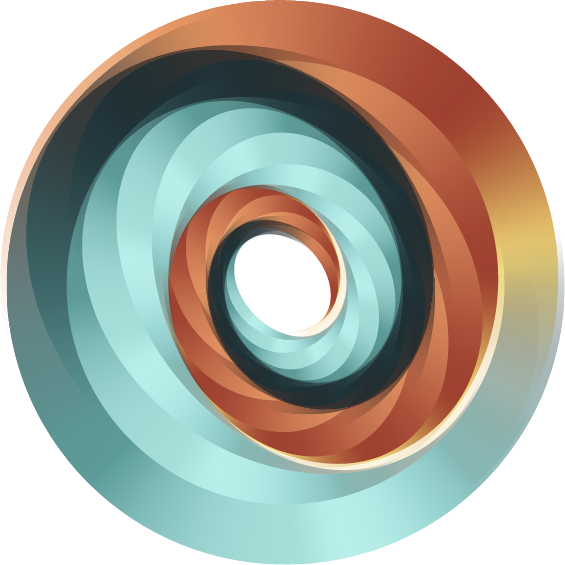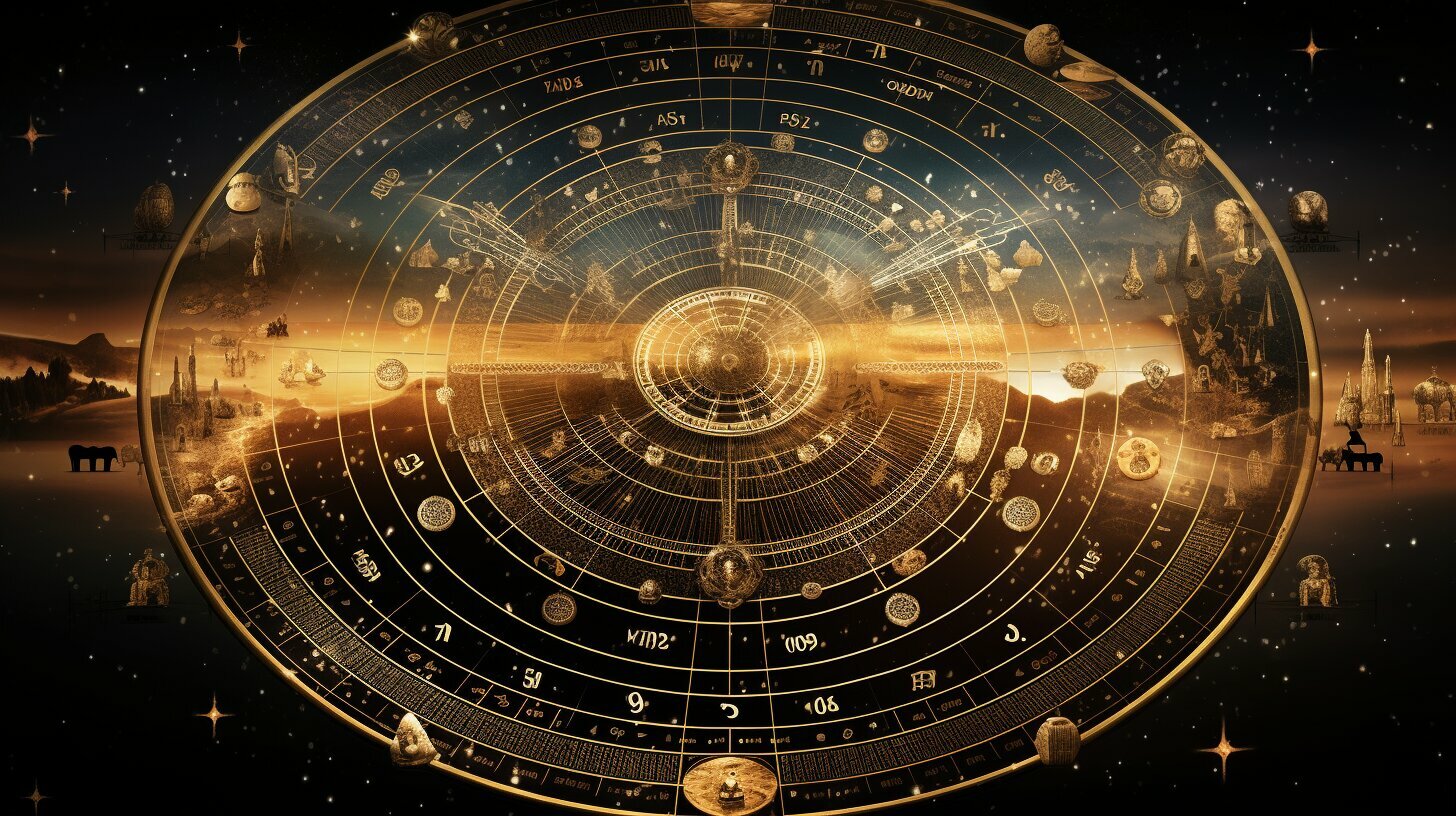While building the Temple of the Great Oracle I have come across various misconceptions about the relationship between astrology and Islam. Some people believe that astrology is entirely forbidden in Islam, while others consider it a legitimate practice. In this article, we will explore the topic of astrology in Islam and the vital things you should know about it.
Islam places great importance on the study and contemplation of the universe and its celestial bodies. The Quran contains numerous references to the sun, moon, and stars and their significance in divine creation. As a result, astrology has been a subject of interest in Islamic scholarship throughout history.
Key Takeaways:
- Islam places great importance on the study and contemplation of celestial bodies.
- Astrology has been a subject of interest in Islamic scholarship throughout history.
Understanding Islamic Astrology
Unlike Western astrology that focuses on individual personality traits and future predictions, Islamic astrology is primarily centered around self-reflection, spiritual growth, and understanding one’s relationship with Allah. Islamic astrology is not just about predicting the future or reading horoscopes but instead accessing one’s inner potential and connecting to the divine.
Islamic astrology uses the position of celestial bodies to gain insights into the human psyche and its connection to the divine. It is important to note that Islamic astrology does not encourage reliance on astrology alone but rather using it as a tool for guidance and reflection.
One of the primary goals of Islamic astrology is to help individuals understand their strengths and weaknesses, and how they can use them to achieve their spiritual goals. Islamic astrology seeks to empower individuals to take responsibility for their lives and become the best versions of themselves.
Using Islamic Astrology for Personal Growth
Islamic astrology is not just about understanding one’s personality traits but using that knowledge to work on oneself. Islamic astrology provides a deeper understanding of one’s spiritual journey and how to navigate it. Through self-reflection and contemplation, one can identify areas of improvement and work towards becoming a better Muslim.
Islamic astrology can also be used to gain clarity in decision-making, especially for significant life events such as marriage, career choices, and traveling. Using Islamic astrology can help individuals make informed decisions that align with their spiritual journey and destiny.
Islamic astrology emphasizes the importance of mindfulness and being present in the moment. It encourages individuals to be aware of their thoughts and emotions and understand how they influence one’s actions and relationship with Allah. By practicing mindfulness and self-reflection, one can enhance their spiritual connection and become more attuned to the divine.
Astrology and Muslim Beliefs
There are varying opinions within the Muslim community regarding the acceptance or rejection of astrology. While some view it as a useful tool for self-reflection and personal growth, others consider it incompatible with Islamic beliefs.
However, I believe that personal interpretation and cultural influence play a significant role in shaping one’s perspective on astrology. The Quran does mention celestial bodies and their importance, but it is up to individuals to interpret these references within their proper context.
Ultimately, the use of astrology in Islam comes down to personal discretion. As with any spiritual practice, it is essential to approach astrology with an open mind and stay grounded in your faith.
The Role of Astrologers in Islam
It should be the role of Astrologers in Islam to use their expertise to guide and support individuals in their spiritual journey. However, it is important to note that becoming an Islamic astrologer requires a thorough understanding of Islamic teachings and deep knowledge and practice of astrology.
Islamic astrologers are not fortune-tellers but rather use astrology to gain insight into an individual’s personality, strengths, weaknesses, and potential spiritual growth. It is our responsibility to ensure that we provide guidance that aligns with Islamic values and ethics, and we must also emphasize the importance of personal accountability and free will.
| Qualifications | Ethical Considerations | Responsibilities |
|---|---|---|
| Thorough understanding of Islamic teachings | Respect client confidentiality | Provide guidance that aligns with Islamic values and ethics |
| Knowledge and practice of astrology | Avoid making predictions that are contrary to Islam | Encourage personal accountability and free will |
| Ability to communicate effectively and with empathy | Avoid exploiting vulnerable individuals | Continuing education and self-improvement |
As individuals seek guidance from Islamic astrologers, they must approach their role with humility, empathy, and a deep commitment to ethics. By doing so, we can provide individuals with the support they need as they navigate their spiritual journey.
Astrology and Fate in Islam
Islamic astrology can provide insight into the reality of predestination, a central belief in Islam. We understand that everything has a predetermined destiny that is written by Allah (swt) and cannot be changed. Astrology can be seen as a way to understand better and navigate one’s destined path.
However, it is important to note that Islamic astrology does not claim to predict the future or change one’s destiny. Instead, it offers guidance on how to align oneself with the divine will and fulfill one’s purpose in life. By understanding the influence of celestial bodies on human behavior and emotions, we can gain a deeper understanding of ourselves and the world around us.
It is crucial to approach astrology in Islam with a balanced perspective. While we believe in predestination, we also have free will and cannot use astrology to predict or manipulate the future. Instead, we must rely on our faith and trust that Allah (swt) has a plan for us. Astrology can serve as a tool for self-reflection and spiritual growth, but it should never be used as a replacement for prayer, faith, and good deeds.
Islamic Astrology Signs
Exploring the Islamic astrology signs can be a fascinating and enlightening journey. Each sign is connected to different personality traits and characteristics, which can provide insight into one’s strengths and weaknesses. Understanding the Islamic zodiac can also help individuals navigate their spiritual journey and connect with their true purpose.
| Sign | Personality Traits |
|---|---|
| Aries | Confident, ambitious, courageous |
| Taurus | Patient, reliable, practical |
| Gemini | Curious, communicative, versatile |
| Cancer | Intuitive, emotional, nurturing |
| Leo | Generous, confident, creative |
| Virgo | Detail-oriented, practical, analytical |
| Libra | Harmonious, diplomatic, fair-minded |
| Scorpio | Passionate, intense, perceptive |
| Sagittarius | Adventurous, optimistic, philosophical |
| Capricorn | Ambitious, disciplined, responsible |
| Aquarius | Independent, open-minded, humanitarian |
| Pisces | Compassionate, artistic, intuitive |
It is important to note that while the Islamic astrology signs share some similarities with Western astrology, they also have unique qualities that reflect Islamic teachings and values. Each sign is connected to a different chapter of the Quran, which emphasizes the spiritual significance of the zodiac.
Exploring your Islamic astrology sign can be a powerful tool for understanding your true self and your connection with the divine. Remember to approach astrology with humility and openness, and use it as a means for spiritual growth and personal guidance.
Astrology in Islam: 10 Things you should know
The Quran and Astrology
The Quran mentions celestial bodies and their significance in many verses. For example, Surah Al-Hijr 15:16 states, “And We have placed within the heaven great stars and have beautified it for the observers.” Similarly, Surah Al-An’am 6:97 states, “And it is He who placed for you the stars that you may be guided by them through the darknesses of the land and sea.”
It is important to understand these references in their proper context and not to interpret them as endorsing astrology as a tool for prediction or fortune-telling. The Quran emphasizes the importance of seeking guidance and knowledge from Allah (SWT) and not from the stars or other created beings.
Astrology and Spiritual Growth in Islam
As an Islamic astrologer, I firmly believe that astrology can be a powerful tool for self-reflection, mindfulness, and spiritual growth. By understanding the unique characteristics and traits associated with our Islamic zodiac signs, we can gain insight into our strengths, weaknesses, and potential areas for growth.
As with any spiritual practice, it’s important to approach Islamic astrology with an open and humble heart, seeking guidance and inspiration rather than trying to predict or control the future. By staying grounded in our faith and using astrology as a complement to our Islamic teachings, we can foster a deeper connection with the divine and enhance our spiritual journey.
Through astrology, we can learn more about our purpose, values, and priorities, and gain clarity about our life’s path. We can identify areas of our lives that require attention and make conscious efforts to align our actions with our beliefs. We can also gain a heightened sense of awareness and mindfulness, allowing us to stay present in each moment and appreciate the blessings and lessons that come our way.
It’s important to remember that Islamic astrology is not a substitute for Allah’s guidance and wisdom, nor can it guarantee any specific outcomes or results. Rather, it’s a complementary tool that can offer valuable insights and guidance as we navigate the complexities of life.
Ultimately, the goal of Islamic astrology is not to gain power or control, but to deepen our understanding and connection to the divine. By approaching astrology with sincerity, humility, and a willingness to learn and grow, we can experience the transformative power of this ancient practice and use it as a means to enhance our spiritual journey.
Astrology and Personal Guidance in Islam
As an Islamic astrologer, I believe that astrology can provide valuable personal guidance for Muslims. By using astrology as a tool for self-reflection and understanding our strengths and weaknesses, we can make better decisions and navigate life challenges with greater ease.
However, it’s important to approach astrology with caution and balance it with Islamic teachings. While astrology can offer insight and guidance, it should never be used as a replacement for personal discretion or religious guidance.
When seeking personal guidance through astrology, it’s crucial to work with a qualified Islamic astrologer who understands the nuances of interpreting astrological charts within the context of Islamic beliefs. Additionally, it’s important to remember that astrology is not a one-size-fits-all solution and that each individual’s journey is unique.
Some ways that astrology can provide personal guidance in Islam include:
- Decision-making: Astrology can offer insight into the best times to make important decisions and can help individuals make choices that align with their spiritual paths.
- Understanding life challenges: Astrology can provide clarity and understanding around difficult situations, helping individuals navigate them with greater ease and resilience.
- Seeking clarity in personal matters: Astrology can help individuals gain a deeper understanding of their own strengths, weaknesses, and tendencies, leading to greater self-awareness and personal growth.
Overall, astrology can be a valuable tool for personal growth and guidance in Islam, but it’s important to approach it with an open mind and a grounded understanding of its limitations and potential ethical considerations. By balancing Islamic teachings with astrology, we can gain greater insight into our spiritual paths and make more informed decisions along the way.
Conclusion
In conclusion, astrology has a significant place in Islam, with references to celestial bodies found in the Quran and Islamic traditions. As a person who values personal growth and reflection, I believe that astrology can be a useful tool for individuals seeking to better understand themselves and their relationship with the divine.
While there may be varying opinions within the Muslim community regarding the acceptance of astrology, I encourage readers to approach Islamic astrology with an open mind and heart. By using astrology as spiritual growth and personal guidance, we can gain deeper insights into our strengths, weaknesses, and life challenges.
At the same time, it is essential to balance the practice of astrology with Islamic teachings and values. We can make informed decisions by using astrology as a complement to our faith and personal discretion.
Overall, I hope that this article has shed light on the significance of astrology in Islam and its potential to benefit our spiritual journeys. May we all strive to cultivate a deeper connection with the divine and use the tools available to us for personal growth and guidance.
FAQ
Q: What is astrology in Islam?
A: Astrology in Islam refers to the belief and practice of using celestial bodies and their positions to gain insight into one’s life, personality, and destiny.
Q: How does Islamic astrology differ from Western astrology?
A: Islamic astrology differs from Western astrology in its emphasis on spiritual growth, self-reflection, and the understanding of one’s place in the divine plan.
Q: Are astrology and Muslim beliefs compatible?
A: There are varying opinions within the Muslim community regarding the acceptance or rejection of astrology. Personal interpretation and cultural influences play a role in shaping individual beliefs.
Q: What is the role of astrologers in Islam?
A: Astrologers in Islam are individuals who possess the qualifications and expertise to interpret astrological charts and provide guidance and insight to individuals seeking assistance.
Q: How does astrology relate to fate in Islam?
A: Islam believes in predestination, and astrology can be seen as a tool to understand and navigate one’s destined path by gaining insight into the influences of cosmic forces.
Q: What are the Islamic astrology signs?
A: Islamic astrology signs are connected to personality traits, characteristics, and the spiritual journey of individuals, providing insights into their unique qualities and strengths.
Q: Are there references to astrology in the Quran?
A: Yes, the Quran contains references to celestial bodies and their significance. These references should be interpreted within their proper context.
Q: How can astrology be used for spiritual growth in Islam?
A: Astrology can be used as a tool for self-reflection, mindfulness, and understanding one’s strengths and weaknesses, enhancing one’s connection with the divine and promoting spiritual growth.
Q: Can astrology provide personal guidance in Islam?
A: Astrology can provide personal guidance by assisting in decision-making, understanding life challenges, and seeking clarity in personal matters. It is important to balance astrology with Islamic teachings and exercise personal discretion.




